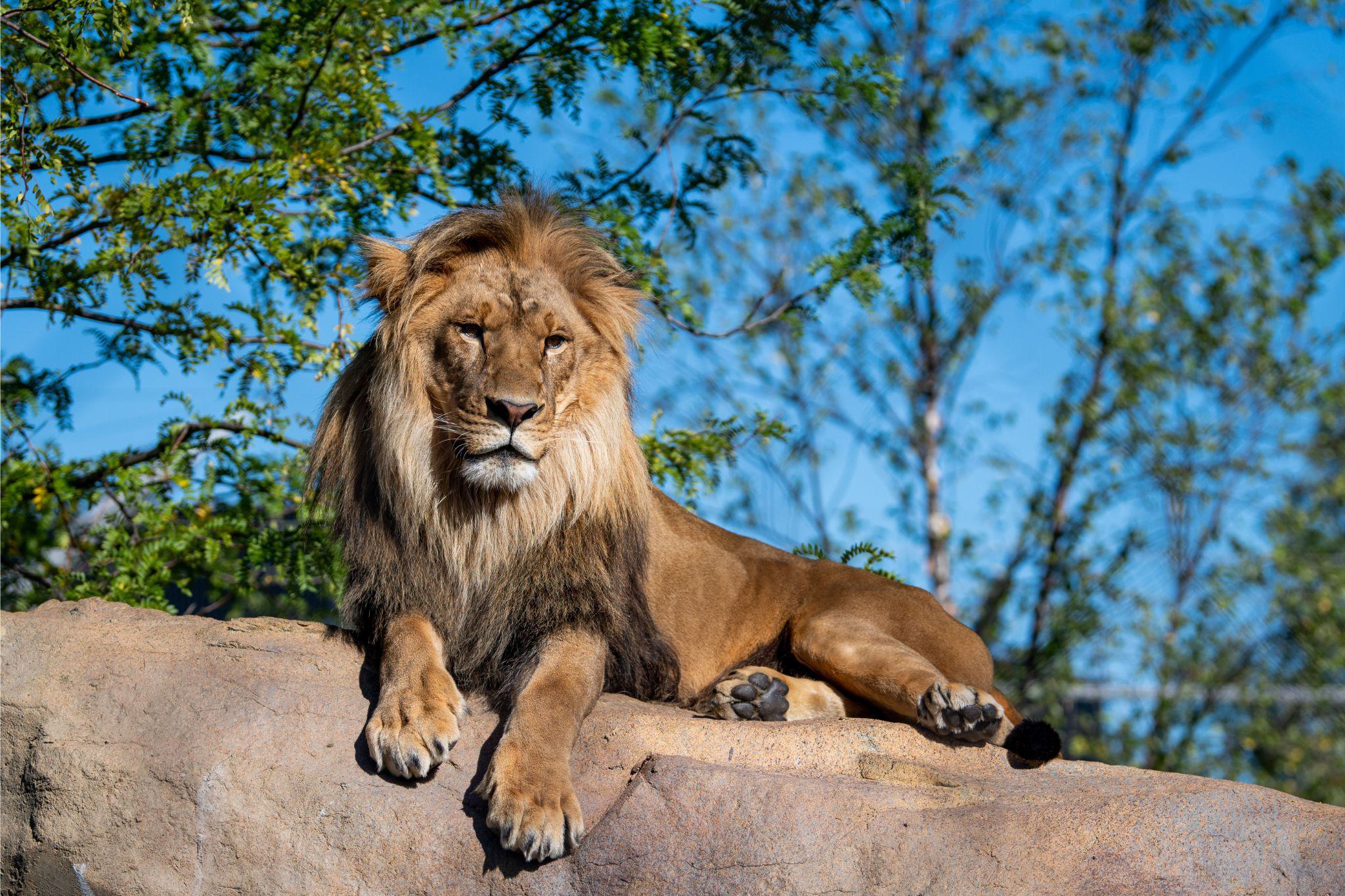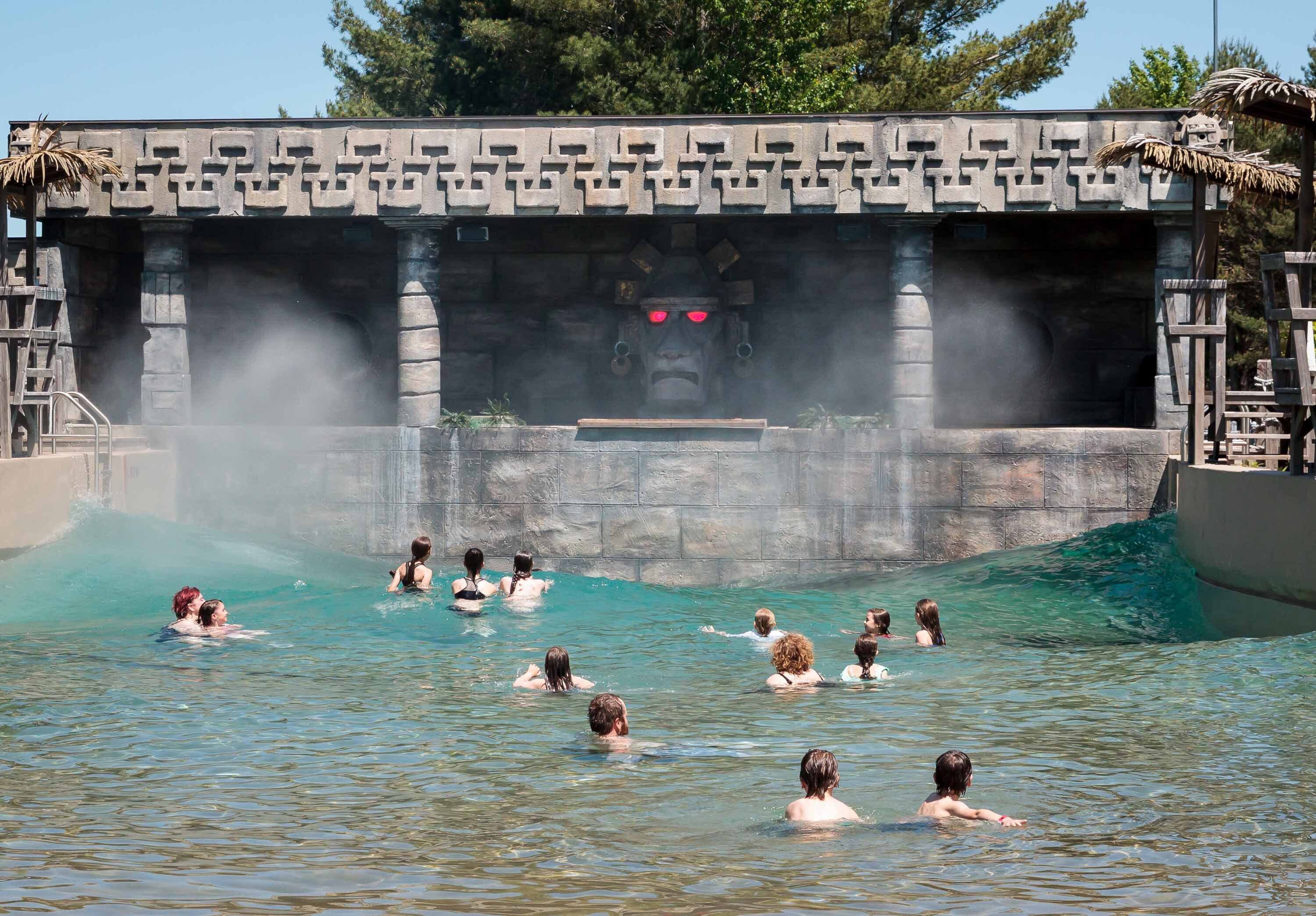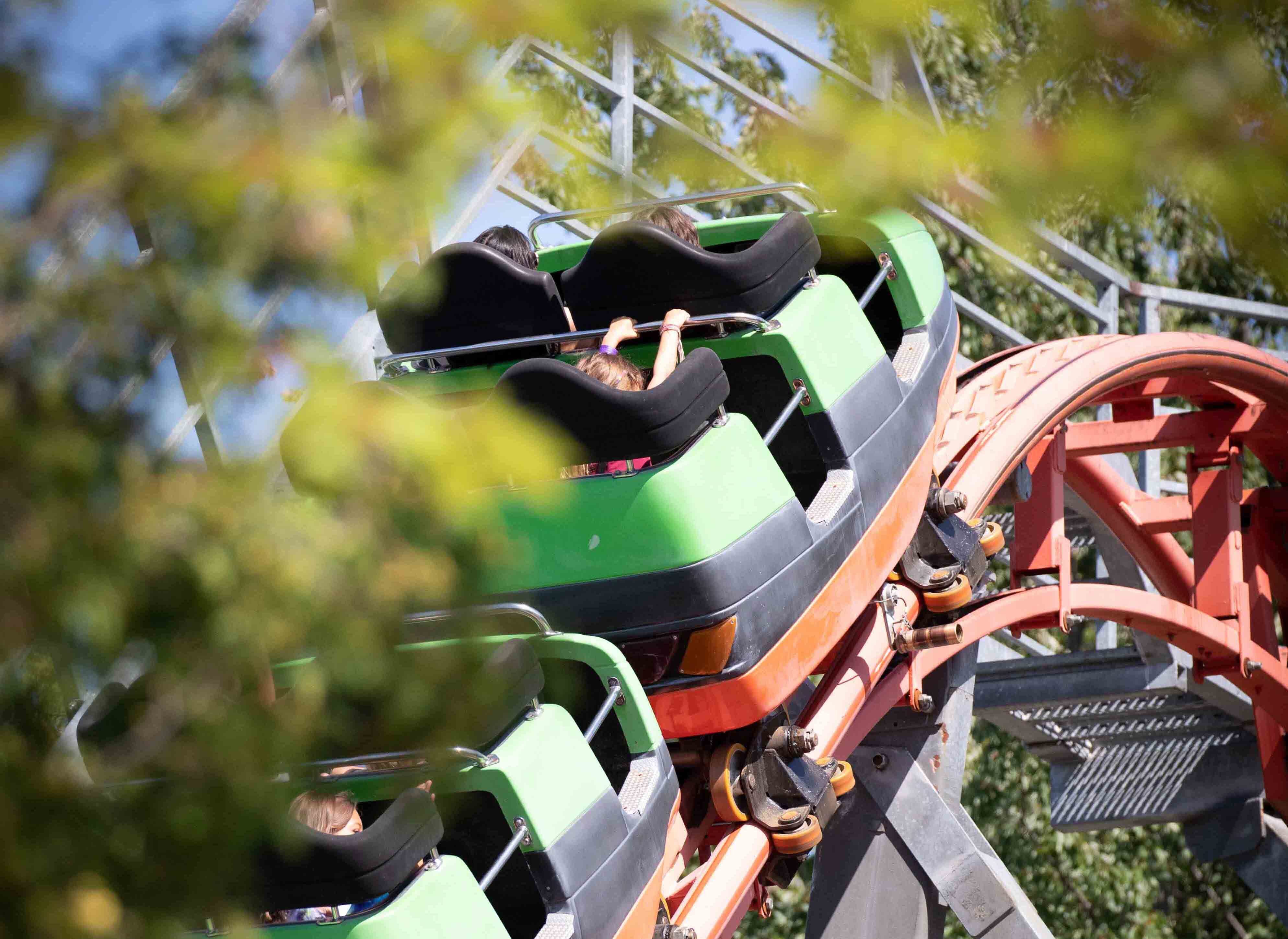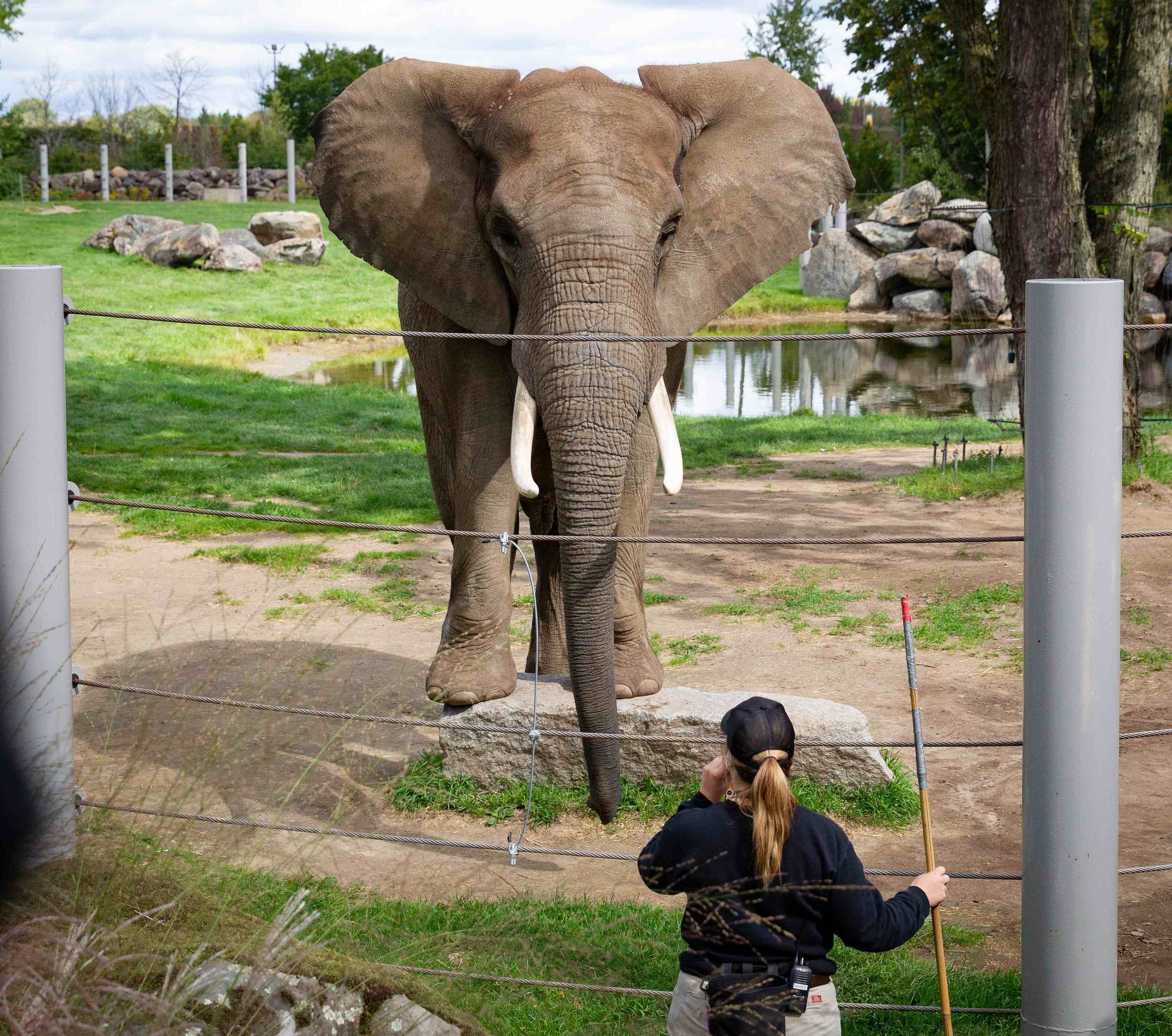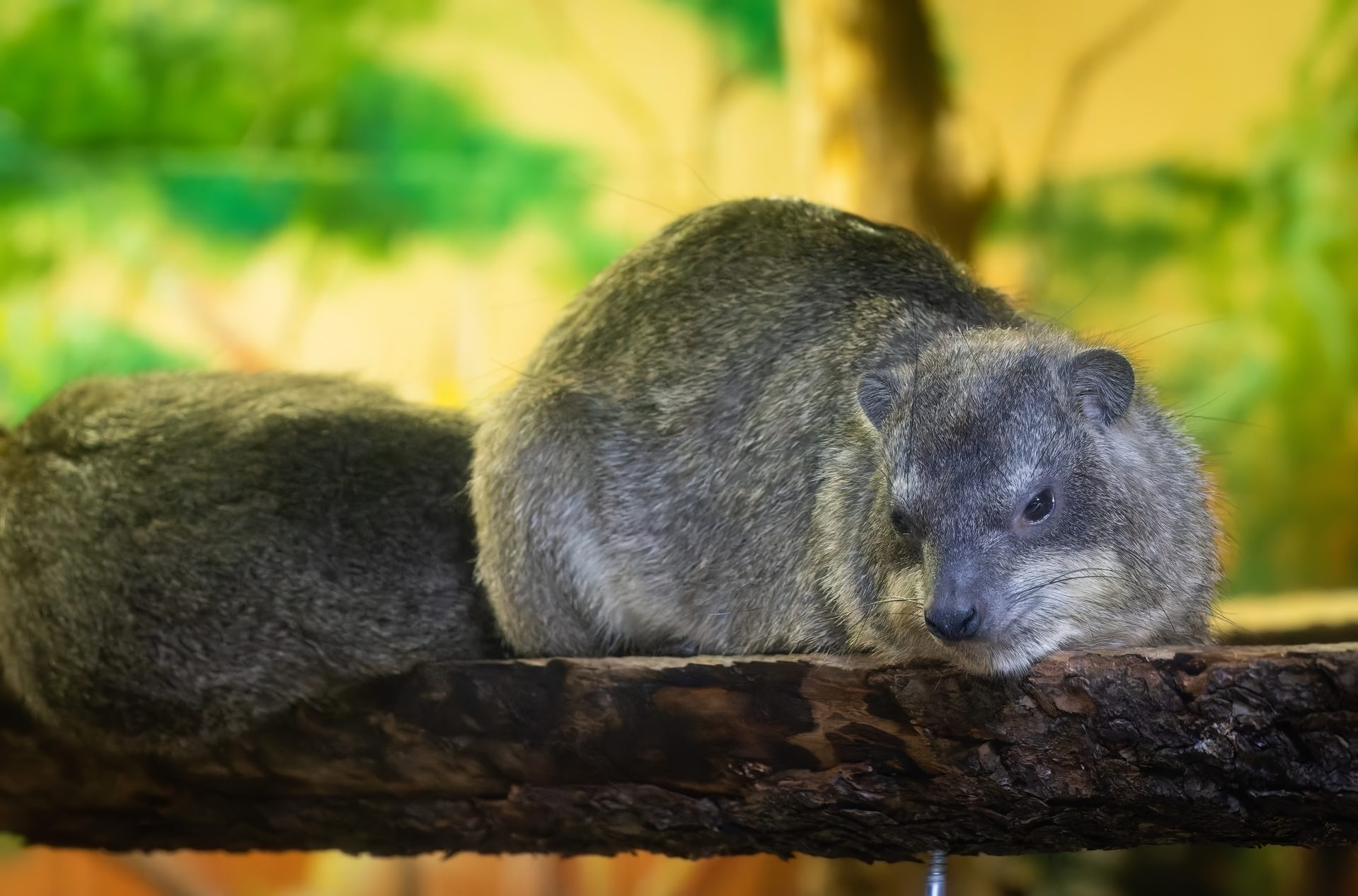
Rock hyrax
Distribution
Africa
Diet
Herbivore
Habitat
semi-desert regions
Latin Name
Procavia capensis
IUCN conservation status
- Extinct
- Critically endangered
- Endangered
- Vulnerable
- Near threatened
- Least concern
A friendly African herbivore equipped with sharp, chisel-shaped canines!
Interesting informations
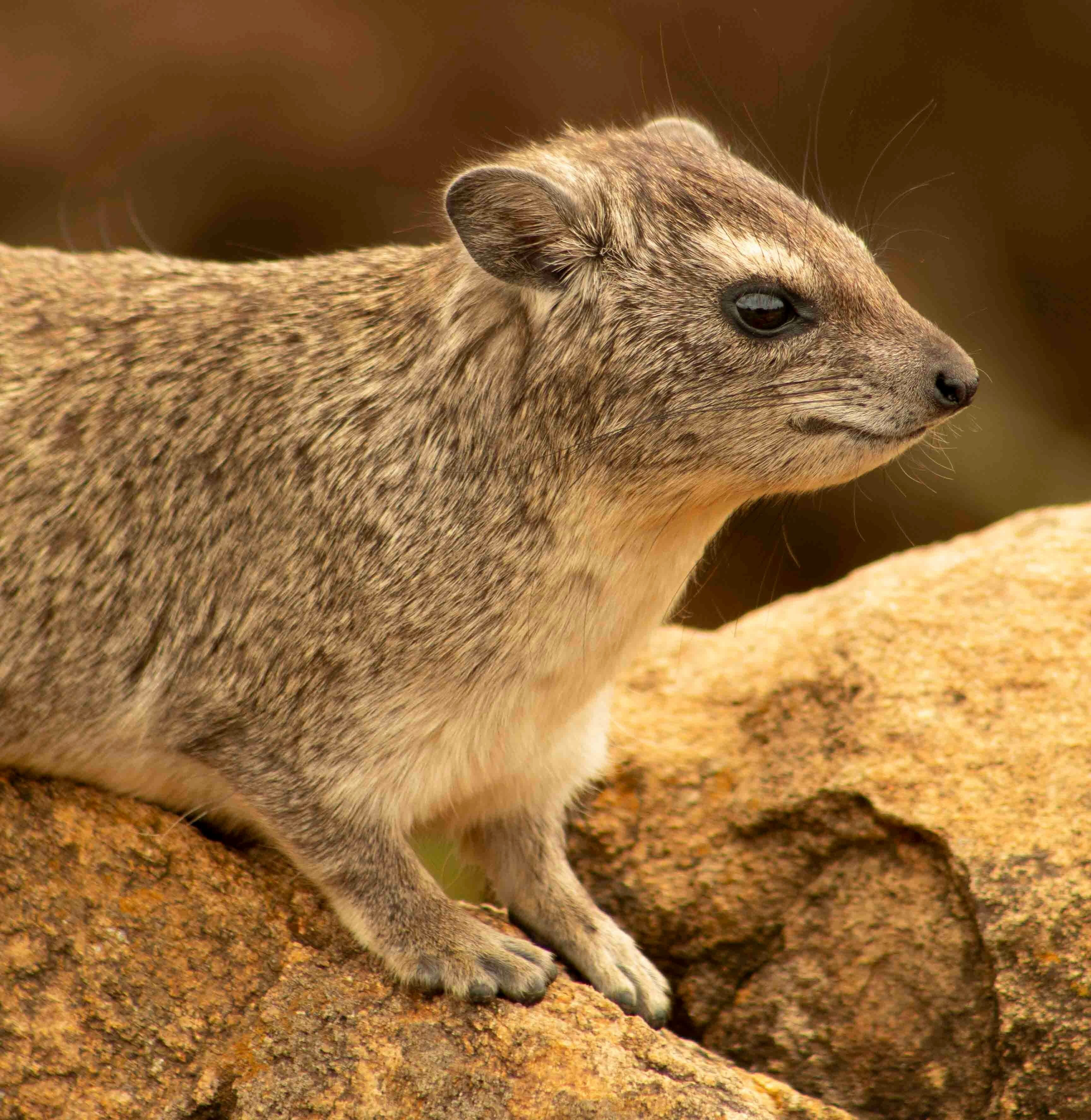
Feeding While Keeping an Eye on Its Immediate Surroundings
The rock hyrax feeds primarily on leaves and grass, but occasionally also on insects. It can also resort to tree bark when food becomes scarce. The females take turns acting as sentinels while the rest of the group feeds in peace.
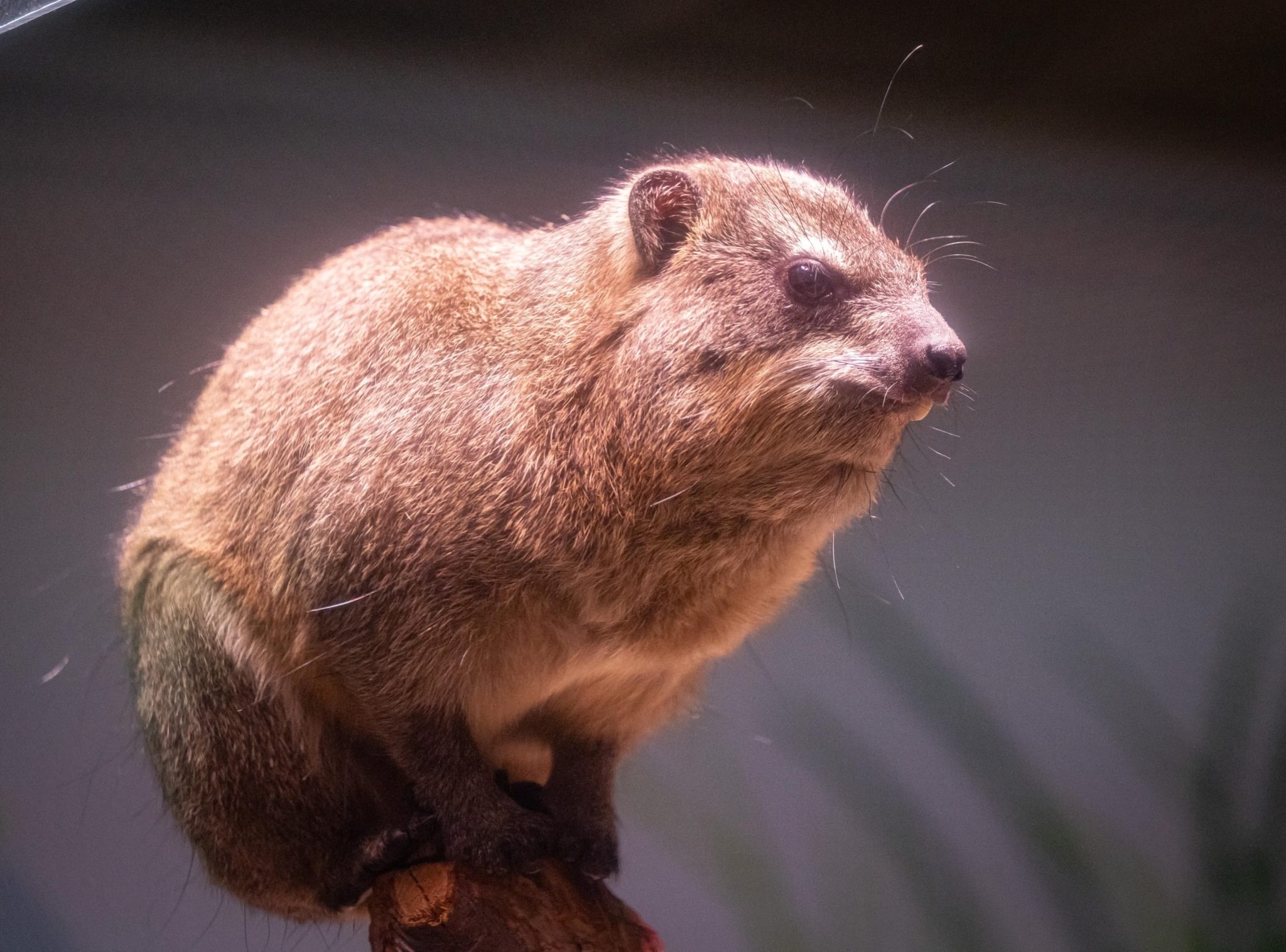
A Stocky Body That Hides Its Surprising Agility!
Similar to a large guinea pig, this cylindrical-bodied animal has short legs equipped with claws that allow it to climb rocks with surprising speed! Its small, sharp canines are clearly visible and are displayed during fights over control of a harem of females.

A Structured Social Life Based on a Complex Communication System
Very sociable, the rock hyrax lives in groups that can number up to 80 individuals! Within these mega-groups, clans made up of a few families (females and young) are protected by a dominant male. About twenty different vocalizations are used to identify danger, communicate emotions, or call out to an individual. These calls vary from one region to another.
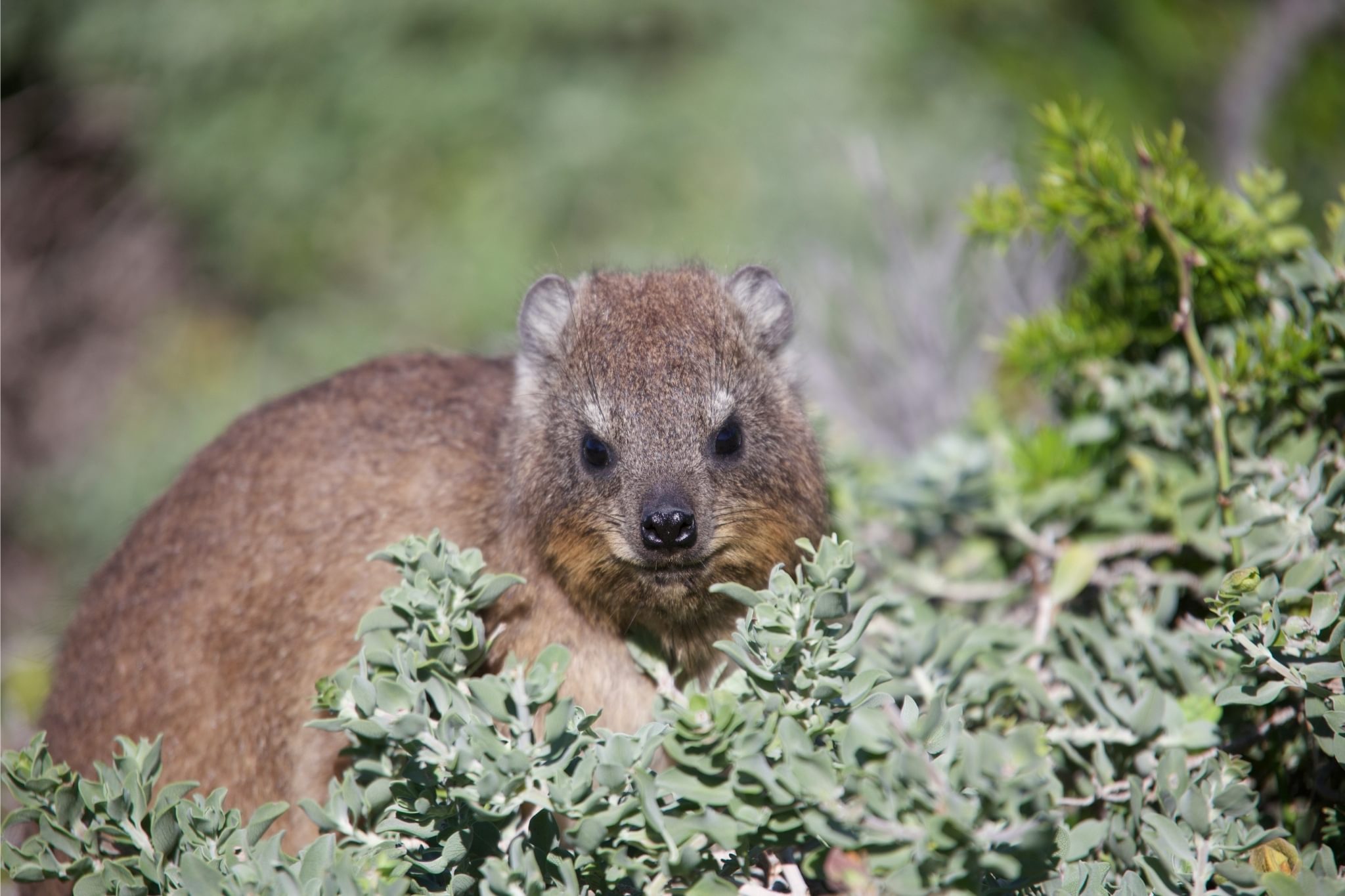
Common in Its Range, a Potential Victim of Habitat Loss
Although the exact number of rock hyraxes in the wild is unknown, they are considered abundant with populations regarded as stable. However, urbanization and the expansion of agricultural lands affect their natural habitat and food availability. The animal is also hunted for its meat and exterminated when considered a pest.
